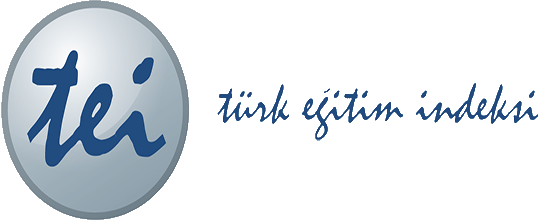MODERNIZATION OF PUBLIC ADMINISTRATION WITH THE USE AND DEVELOPMENT OF INTELLECTUAL POTENTIAL OF THE POPULATION OF UKRAINE
DOI:
https://doi.org/10.32689/2617-9660-2020-5(11)-185-194Keywords:
public administration, the intellectual potential of the population, population development, modernization of public administration.Abstract
The search for strategic directions for the modernization of public administration for the benefit of humans requires the identification of the root causes of internal and external nature, which prevent the preservation of qualitative and quantitative composition of human potential. The influence of global culture is an inevitable process that requires considerable attention from the management system to preserve national values, traditions, the best features of mentality, national identity through the system of regulation of social relations. The intellectual potential is a set of abilities, creative talents, skills, motivations of individuals, their educational and qualification, moral, ethical, and cultural level, which allow, using tangible intellectual means, to learn and create new knowledge suitable for use in a particular field of social reproduction, contribute to the growth of productivity and efficiency of production and thus affect the growth of income of a particular individual in the future. European integration processes must be balanced. The desire to build targets for the development of society with a focus on European social norms and standards can have negative consequences when there are no resource grounds for their implementation, which will lead to a negative attitude to the process itself. At the same time, threats of a different nature arise when European standards of the consumer society are involved without the desire to create and implement a national rational culture of consumption. For Ukrainian society, the natural features of its inner world are national unity, the desire for solidarity. They need to be preserved, cultivated, distributed, and developed. But it is preferable to borrow individualistic social relations that prevail in families, collectives, regions, and the state. The development of intellectual potential is a priority for the state, because, in the current conditions, neither the richness of the subsoil, nor fertile land, nor the ideal climate, nor tourist attractions can not match the power or social significance of the potential of the human mind.
References
Мельниченко О.Б. Інтелектуальний потенціал України та його розвиток / О.Б. Мельниченко // Українська наука: минуле, сучасне, майбутнє. – 2010. – № 14- 15. – С. 143-148.
Бузько І.Р. Дослідження чинників, що впливають на формування і розвиток інтелектуального потенціалу підприємства / І.Р. Бузько, Н.Г. Агафонова // Прометей. – 2010. – № 3 (33). – С.59-63.
Новікова О.Ф. Модернізація державного управління у контексті збереження людського потенціалу в умовах обмежених можливостей / О.Ф. Новікова, О.Г. Сидорчук // Вісник Кам’янець-Подільського національного університету імені Івана Огієнка. Економічні науки. – 2015. – № 10. – С. 309-312.
Архієреєв С. Підвищення ролі регіонів у випуску високотехнологічної та інноваційної продукції: міжнародний досвід [Електронний ресурс] / С. Архієреєв, О. Попадинець // – Режим доступу: http://old. niss.gov.ua/Monitor/november08/5.htm
Гунько В.І. Показники, індикатори та критерії розвитку інтелектуального потенціалу зайнятого населення [Електронний ресурс] / В.І. Гунько // Вісник Сумського національного аграрного університету. Фінанси і кредит. – 2013. – № 1. – С. 190-197. – Режим доступу: http://irbis-nbuv. gov.ua/cgi-bin/irbis_nbuv/cgiirbis_64.exe?C 21COM=2&I21DBN=UJRN&P21DBN=UJRN &IMAGE_FILE_DOWNLOAD=1&Image_file_ name=PDF/Vsnau_2013_1_35.pdf
Паладій М.В. Ефективне використання інтелектуального потенціалу нації – необхідна умова інноваційного розвитку економіки держави / М.В. Паладій // Наука та інновації. – 2009. – Т.5. – №3. – С.51-54.
Рудь Н.Т. Інтелектуальний потенціал: фактори формування і реалізації [Електронний ресурс] / Н.Т. Рудь, Ю.М. Гаврилюк // Економічні науки. Сер. : Економіка та менеджмент. – 2011. – № 8. – С. 283-297. – Режим доступу: http://irbis-nbuv. gov.ua/cgi-bin/irbis_nbuv/cgiirbis_64.exe?C 21COM=2&I21DBN=UJRN&P21DBN=UJRN &IMAGE_FILE_DOWNLOAD=1&Image_file_ name=PDF/ecnem_2011_8_31.pdf










